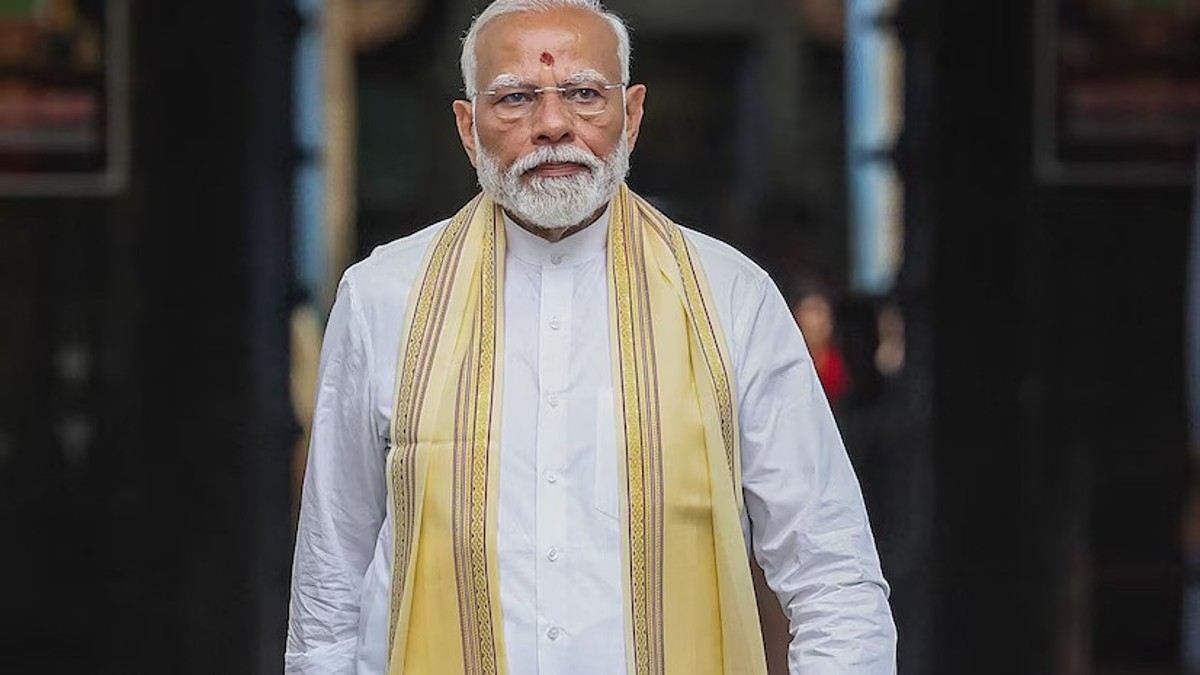The world seems to have four directions: north, south, east, and the one mortifying India. Modi continues to be the prime minister of India as the nation pronounces its democratic word. Whether the world likes it or not, that is how the cookie crumbles. With this remarkable third win in a row, the Western media resorted to doing what it does best—criticising the Indian narrative.
Being the largest democratic practice in history, the Indian general elections turned global eyes towards India. The Lok Sabha elections 2024 results got front-page coverage from major international publications—only that they were hysterically skewed.
In the aftermath of Narendra Modi’s victory in the Indian general elections, Western media outlets displayed a notable bias in their coverage. This bias manifested in various forms, from the selective emphasis on certain aspects of Modi’s politics to a broader narrative that often overlooks the complexities of Indian democracy and the socio-political context in which Modi’s popularity is entrenched.
‘ Needing Help to Stay in Power, Modi Loses His Aura of Invincibility’, ‘ Narendra Modi Fell to Earth After Making It All About Himself’, ‘ India’s Modi, Humbled by Voters, Faces Potent Economic Struggles’ — not one New York Times headline could simply acknowledge that Modi has won the elections without a complimentary revilement.
“His carefully cultivated brand has now peaked, and that he can no longer outrun the anti-incumbency sentiment that eventually catches up with almost any politician,” are the remarks that The New York Times had to offer as Modi won. The front page statement in the print edition of the NYT called it “a sobering result for a prime minister on the cusp of a third term”.
Impact Shorts
More ShortsThe Washington Post sees the general election results as an “unexpected repudiation of Prime Minister Narendra Modi’s leadership”, further calling it a “stunning setback”. To call a clear mandate a “stunning setback” simply because the opposition coalition didn’t collapse is a profoundly flawed logic. Further, it calls the election episode as the one “piercing the aura of invincibility around the most dominant Indian politician in decades”. The Post went to the extent of remarking, “For the first time in years, Modi seemed vulnerable.”
Deutsche Welle’s headline was no different. It quoted a political scientist calling the elections as “a personal setback for Modi”.
Instead of calling it a triumph, The Telegraph termed Modi as suffering from a “surprise loss of majority in India election”. Furthermore, the article underscored public discontent by quoting an analyst who sees the results as “a sign of fatigue with the Hindu nationalist, communal rhetoric and is also a verdict on the economy.”
The British publication The Guardian’s report stated that “results did not have the flavour of victory for the strongman prime minister”. In addition, The Guardian quickly acknowledged that the exit poll predictions did not materialise well, heralding the opposition, saying, “The INDIA coalition proved more resilient and successful than many analysts had expected, despite grappling with state agencies freezing party funds and jailing opposition leaders in the buildup to the polls.”
Likewise, the Financial Times said that the voters delivered a shock to Modi. Quoting an analyst, it said, “The result was a blow to a forceful leader who had dominated the political scene.” Further, in another quote, FT mentioned that “a certain distaste for his (Modi’s) hubris seems to have set in”.
The Economist’s report titled “A shock election result in India humbles Narendra Modi” was also critical of Modi’s win, stating, “The idea of Mr Modi ruling for another ten years is now far less likely given his personal brand has dimmed.”
These narratives did not sprout of the sky post results but were woven well before. Bloomberg, in its special report, argued why the southern part of India is rejecting Modi, saying, “The more progressive and successful part of the country is drifting away from the poverty-ridden north and its majoritarian leader”. France24 did a report emphasising the “trust deficit” in India’s electronic voting system.
This wave of criticism from the Western media highlights a significant bias, reflecting their tendency to focus on narratives that undermine Modi’s achievements while ignoring the broader democratic endorsement he received. Such a perspective fails to appreciate the nuances of Indian politics and the substantial voter base that continues to support Modi’s vision for India. Influential international media so brazenly undermining a democratic exercise by one of the world’s most significant countries surfaces its highly problematic lens on India.
Giving credit where it is due, Modi’s victory did not turn out as glorious as predicted or claimed. But that does not justify making it the major stakeholder of every story the West writes on the Indian election results. The quintessential Western journalism needs to rebrand its stories better because Indian citizens no longer succumb to buying abhorrence.
The author is an independent writer based in India. His works have appeared in Al Jazeera, Vogue India, The Hindu, Hindustan Times, and elsewhere.The views expressed in the above piece are personal and solely those of the author. They do not necessarily reflect Firstpost’s views.


)

)
)
)
)
)
)
)
)



